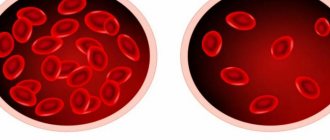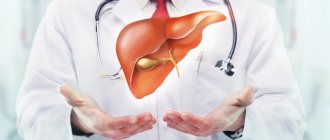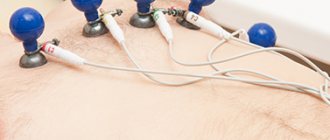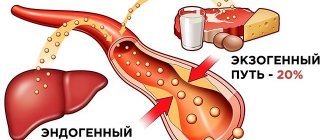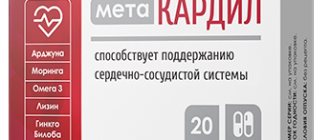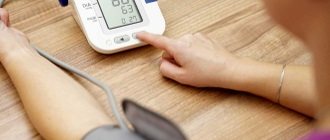Human health depends on many factors. First of all, from taking care of yourself, proper nutrition, an active lifestyle and regular preventive examinations with doctors. Many people are familiar with the concept of high cholesterol. Everyday advertising, labels on food products, and medical tests remind us of this.
Complexes of measures, nutritional methods, and a diet for high cholesterol are being developed by well-known nutritionists and doctors. The measures are aimed at improving the condition and healing of the body. Let's figure out what it is and how to properly reduce cholesterol.
Importance for the body
Many people have the misconception that cholesterol is extremely dangerous and harmful to health. It comes in with food. And it is necessary to take all measures to avoid the accumulation of this substance in the body. The statements are half true.
Cholesterol is an organic, fatty compound that helps in metabolism and promotes the normal functioning of internal organs. About 20% of lipid compounds enter the body with food, the remaining 80% are produced independently. Synthesis occurs in the intestines and liver.
Functionality
The connection plays an important role in life:
- Participates in fat metabolism and promotes uniform distribution of lipids;
- Breaks down fat-soluble vitamins and transports them throughout the body;
- Produces structures from which the cell membrane is built, protecting against external influences. Cell permeability and vulnerability depend on its thickness. A sufficient amount of cholesterol helps strengthen the membrane, making it durable.
- Regulates cell permeability for the intake of nutrients and the excretion of synthesized compounds;
- It is part of the myelin sheaths, which serve as a protective layer of nerve fibers;
- Thanks to this organic compound, the sun's rays, namely ultraviolet radiation, are converted into vitamin D in the body;
- Helps in the formation of bile and promotes the correct elimination process;
- Plays an important role in the protection of red blood cells, protecting red blood cells from toxins, viruses, bacteria;
- The production of sex hormones, adrenaline and norepinephrine occurs with the participation of cholesterol;
- A good mood also depends on the amount of this substance in the body. It is involved in the work of serotonin receptors, responsible for their normal functioning;
- Ensures the performance of the entire body, starting from the cellular level and ending with muscle function and the strength of the bone skeleton;
- Thanks to its presence, the synthesis of hormones and the absorption of vitamins is possible. Correct metabolism occurs, metabolic rate is regulated;
In the fight against fat deposits, the presence of cholesterol has a beneficial effect. It promotes the formation of fatty acids and the breakdown of fats that enter the body with food.
Thus, cholesterol is an important component of our body. And what high cholesterol means for health is not difficult to answer.
What is “good” and “bad” cholesterol
Lipoproteins, molecules consisting of fat and protein, are responsible for transporting cholesterol through the orgasm. They are divided into two types:
High density is “good” cholesterol . It is transferred from the body's cells to the liver, where it is successfully broken down. This cholesterol is believed to prevent cardiovascular disease.
Low density - “bad” cholesterol . Such lipoproteins, on the contrary, transfer cholesterol from the liver to other body systems. If there is too much of it, it is deposited on the walls of blood vessels and forms plaques.
Normal indicators
However, all of the above is true with normal cholesterol levels. High cholesterol leads to malfunctions in the body, the appearance of various diseases, and aggravation of existing ones. For each person, these indicators are individual and depend on gender, age, and concomitant medical history.
To find out your numbers, you need to take a blood test for cholesterol. The therapist will issue a referral for tests and explain the findings. For accurate results, blood is donated in the morning on an empty stomach. The day before, you need to avoid excessive physical activity and do not drink alcoholic beverages.
Cholesterol analysis, the price depends on several factors: laboratory equipment, service provider company, preferential categories, insurance policy. The cost varies from 250 rubles.
For different categories of citizens, a division of the normal levels of cholesterol in the blood is provided:
- 2.9-5.25 mmol/l (for children under 5 years of age);
- 3.13-5.3 (children 5-10 years old);
- 3.08-5.23 (schoolchildren 10-15 years old);
- 3.37-6.58 (women, men, young people under 40 years old);
- 4.09-7.38 (mature people under 60);
- 4.09-7.85 (over 60).
Values that do not correspond to the norm
If the cholesterol test is carried out correctly and the indicators do not correspond to the above values, then this indicates health problems and disruption of the functioning of internal organs. In this case, consultation with specialists is necessary.
At elevated values, noticeable changes occur in the body, caused by a decrease in the elasticity of the walls of blood vessels, the appearance of atherosclerotic plaques, as a result of which the lumen of the vessels narrows and blood circulation is impaired. Oxygen starvation occurs and hypoxia develops. This condition, if it lasts long enough, leads to disruptions in the functioning of the heart and brain.
Possible reactions of the body to high levels of lipid compounds: stroke, heart attack, complications during wound healing, gangrene, muscle tissue atrophy and loss of ability to move, pain in the limbs, neuroses. If cholesterol is elevated, only a doctor can prescribe treatment.
What causes the dangerous condition
The main causes of high cholesterol:
- The presence of foods high in fat in the diet. These include fast food, smoked meats, sausages, and lard. The exceptions are eggs, lean meat, but in moderation, otherwise these products also increase cholesterol;
- A sedentary lifestyle leads to decreased blood circulation and slower metabolism. Slow blood flow leads to the accumulation and formation of cholesterol plaques on the walls;
- The presence of concomitant and chronic diseases (diabetes mellitus, gout, liver disease, atherosclerosis, coronary disease, gastrointestinal dysfunction);
- Alcohol and smoking cause irreparable harm to health. The walls of cells and blood vessels become thinner, mobility is lost, and the immune system weakens;
- Hereditary diseases;
- During pregnancy, some blood parameters may change, and the amount of organic compounds increases. Observation and treatment are carried out under the supervision of a gynecologist.
The main recommendations of doctors for the prevention of this condition come down to moderate, regular physical activity, playing sports, adhering to the principles of proper nutrition, giving up bad habits, and medical supervision.
What to do if you have low cholesterol
Indicators may decline in the opposite direction. There are much fewer such cases, but they do exist. Low levels of cholesterol in the blood can lead to serious consequences: mental disorders, atherosclerosis, disturbances in the normal functioning of the intestines, problems with bones, their fragility, decreased sexual desire, hypovitaminosis, infertility, stroke.
Among the most common causes of deficiency are poor nutrition, diseases of internal organs, disorders of the thyroid gland, poisoning, and infectious diseases.
Only a doctor can choose the correct treatment. Basic recommendations for a healthy lifestyle and proper nutrition remain the same. .
In medical, there is a therapist who will help determine your lipid status. He will give all the necessary recommendations and treatment plan. We can take all cholesterol tests. The doctor conducts consultations at home and in the clinic (in Zapadny and in Alexandrovka). The cost of the medical center’s services can be found in the “Price” section or by calling the 24-hour hotline.
Why do you need to lower cholesterol?
Reducing cholesterol levels is necessary to prevent diseases that can be caused by its excess. Such diseases include:
- atherosclerosis, in which the lumens of the arteries narrow or become blocked;
- coronary heart disease;
- myocardial infarction - death of the heart muscle, provoked by the fact that a coronary artery thrombus blocked the access of blood and oxygen;
- angina - insufficient blood supply to the heart muscle with discomfort or pain in the chest;
- strokes caused by the death of brain cells due to blockage of blood vessels by a blood clot and interruption of oxygen supply.
How to lower cholesterol with medications
If the patient follows the recommendations given above, but cholesterol does not decrease, the doctor prescribes medication. It includes:
Statins . The substances block the liver enzyme that produces cholesterol. After taking them, new portions of cholesterol do not enter the blood, and the already accumulated cholesterol is gradually eliminated.
Niacin . Vitamin B blocks the release of fats from fiber into the blood and suppresses the production of cholesterol in the liver. Due to this, its level in the vessels decreases.
Bile acid sequestrants . They bind bile acids in the liver and remove them. Bile acids are produced during the metabolism of cholesterol and fats; when they are removed from the body, cholesterol drops.
All medications have contraindications. Self-selecting and taking medications can have negative health consequences. Before use, consult a cardiologist.
Doctors at the Medicenter clinic network will prescribe a biochemical blood test to determine your cholesterol level. Patients with elevated levels will receive individual recommendations on how to lower cholesterol, taking into account lifestyle, predisposition and health status.
Diet for high cholesterol
If cholesterol increases, experts recommend reducing the total calorie content of the daily diet, namely: minimizing animal fats in the diet. Meat dishes are replaced with fish, and animal fat with vegetable fat, and include fresh vegetables and fruits in the menu. It is advisable to give preference to seasonal fruits.
You should have breakfast with buckwheat, rice or oatmeal, exclude fatty and fried foods from your diet, which will make it possible to lower LDL (low-density lipoproteins), limit the use of salt and sugar, diversify the menu with foods high in fiber, and exclude fast foods containing saturated and trans fats.
You only need to cook food by steaming it, baking it in the oven or stewing it. Meals should be fractional. This is an important condition for therapy. The diet helps cleanse blood vessels and reduce bad cholesterol levels. Experts advise eating:
- pasta made from durum wheat, baked goods made from wholemeal flour;
- chicken fillet, rabbit, turkey, veal;
- sunflower and olive oil;
- sea fish, oysters and scallops;
- eggs, skim milk, curd mass, yogurt and low-fat kefir;
- low-fat cheeses;
- vegetable soups;
- fish soups;
- fresh vegetable and fruit slices;
- legumes;
- fruit ice cream;
- low-fat pudding, oatmeal cookies and nuts;
- water, fruit drink, freshly squeezed juices without sugar.
If cholesterol increases, you should avoid consuming foods that increase the substance:
- lard, lard, butter and palm oil;
- muffins, pasta made from soft wheat;
- duck, goose and pork meat, which can quickly increase the level of an organic fat-like compound in the blood;
- offal, sausages and pates;
- fried fish, squid, caviar, octopus, shrimp;
- scrambled eggs, sour cream, cream, condensed milk, processed cheese;
- meat broths;
- creams, fatty ice cream, coconuts;
- cocoa and coffee drinks with added cream;
- mayonnaise and fatty sauces.
Treatment of high blood cholesterol levels without diet is ineffective

